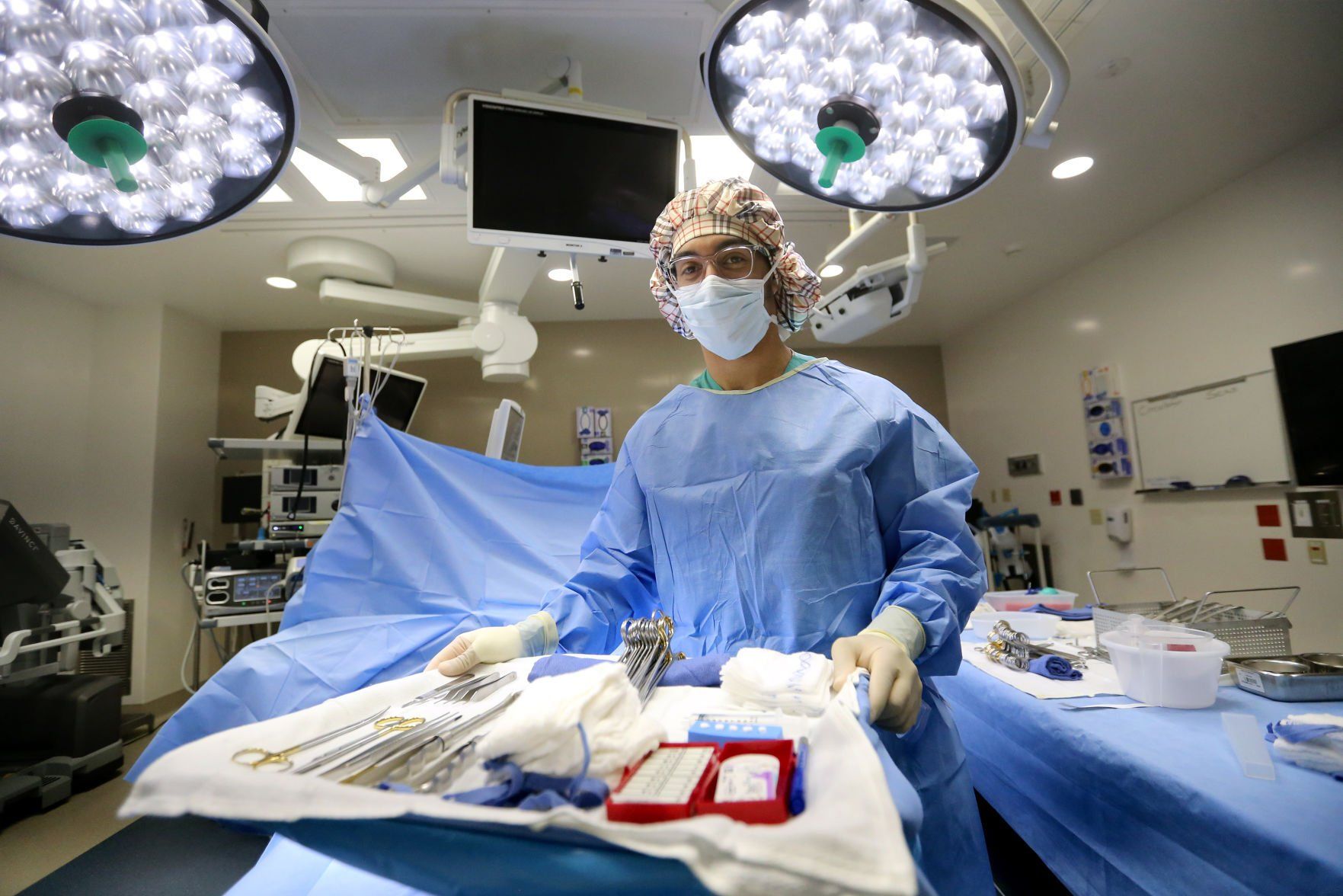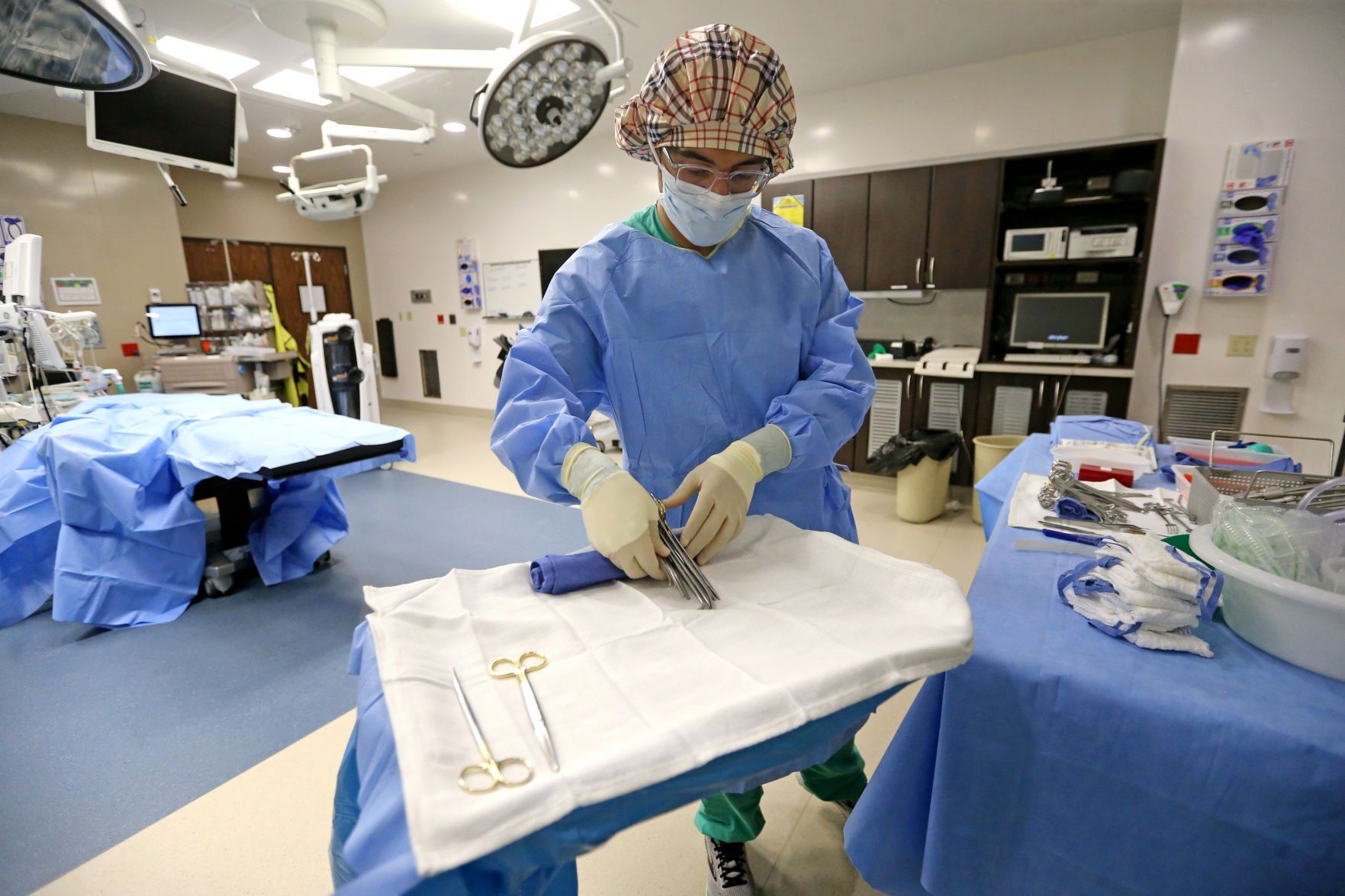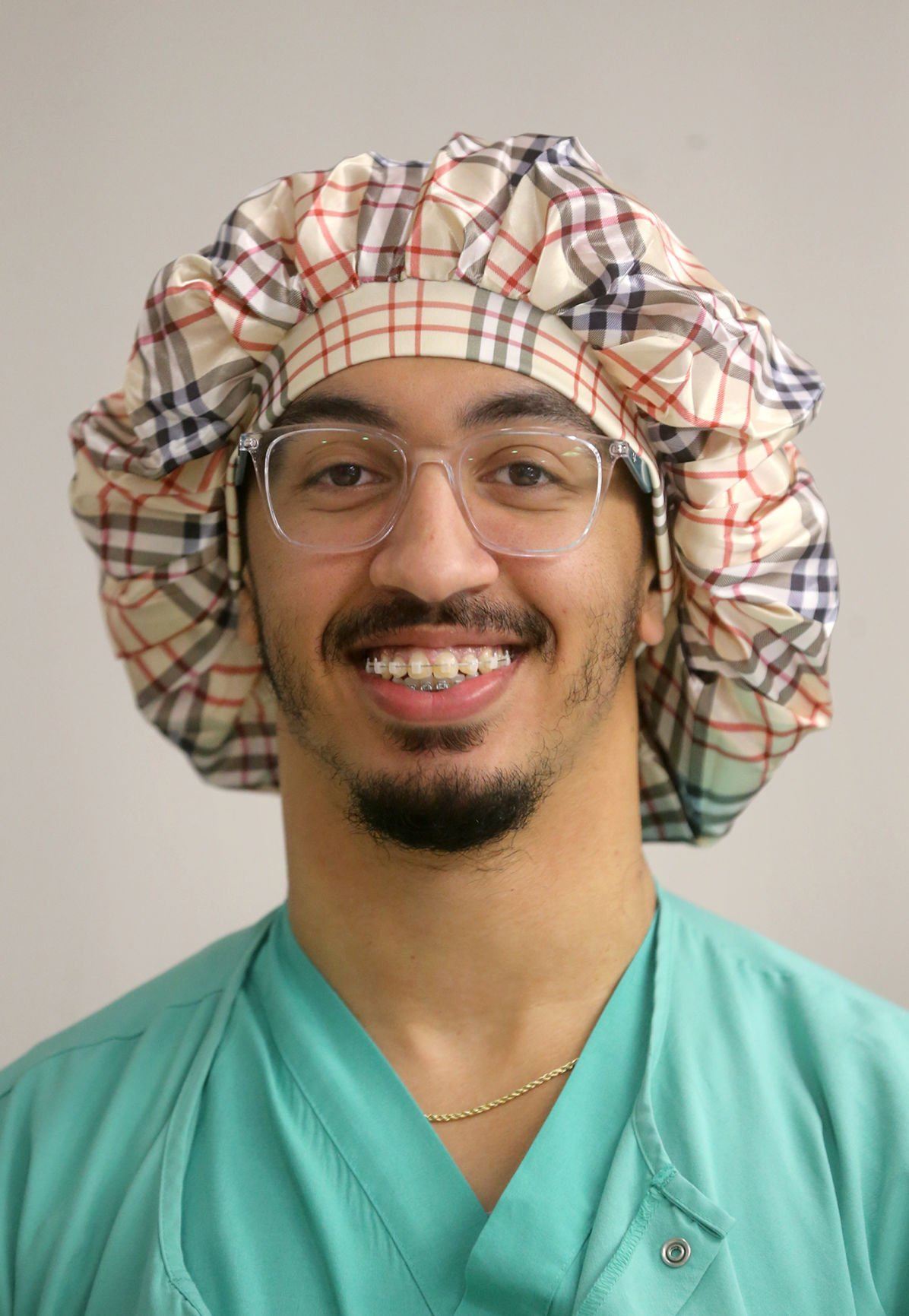When Jerry-Jordan Kane came to Dubuque from South Carolina in 2017, he brought his two sons, his baby daughter and a dream of working in health care.
“I always knew I wanted to get into the medical field,” he said Friday. “I just didn’t know what I wanted to do or what there was out there for me. … Between being a single, full-time father and working a full-time job, going to a traditional college route — full time or part time — just wasn’t working out with me and my schedule. But I knew this was what I wanted to do.”
Some time after arriving in Dubuque, Kane was hired in the nutrition department at MercyOne Dubuque Medical Center.
Now, he is a surgical technician, assisting with intensive procedures every day. Kane is an example of the impacts already being realized thanks to recent grants to local care providers from Iowa’s Employer Innovation Fund.
Kane is the first graduate of a new, internal surgical technician training program at MercyOne in Dubuque, aimed at promoting staff into the sought-after positions while avoiding more traditional pitfalls.
“There is a nationwide surgical tech shortage,” said Hannah Porcic, director of perioperative services at MercyOne in Dubuque. “Surgical techs are imperative to procedures in the operating room at any hospital, but especially anywhere that’s doing surgeries, inpatient or outpatient. The traditional programs we had worked with in the past, the two-year degrees, have seen a drastic decrease in enrollment. So, we were getting fewer candidates.”
So, using a $44,760 grant from the Employer Innovation Fund, MercyOne Dubuque created a six-month program, in which students can work as they become certified as surgical techs. Kane — first recruited to an operating room assistant position — is the first of a current class of four students enrolled in the program, with a goal of eight total technicians to be trained.
“As a surgical technician, we’re the doctor’s right-hand man,” Kane said. “You’re there assisting the doctor throughout the procedure. You’re setting the procedures up. Throughout, you have to maintain a sterile field.”
Word of Kane’s success has made it home to his two sons, who are old enough to understand the important work that their father is doing.
“They’re excited. They’re inspired, seeing that their dad has found himself a career and he loves what he does,” Kane said. “It gives them hope. They dress up in their little scrubs and little doctor hats. We’re at home playing doctor and having fun. It’s motivational for them, but also for me.”
MercyOne was one of six Dubuque recipients of the Employer Innovation Fund grants, which were announced in January.
Stonehill Franciscan Services received $46,000 to pay students in a certified nursing assistant certification program while they are enrolled, in an earn-and-learn format. Stonehill Vice President of Human Resources Karla Waldbillig said that has proven successful both in raising staff up internally but also bringing new people into the health care field.
“It helped us and made us think of our advertising differently,” she said. “I’m reaching out to a lot of organizations trying to find people interested in joining health care who maybe wouldn’t have because the education commitment was maybe prohibitive. We got it out there that they can earn and learn at the same time.”
Waldbillig said Stonehill had 85 applicants in March, a big improvement since the worst stages of the COVID-19 pandemic, and hired 22 CNAs in the same month.
“We have not hired that many CNAs in a month for years. Since COVID hit, I can’t tell you the last time we were even at double digits,” she said. “And I have to believe we are getting a lot more new people into health care because we have not taken that many CNAs from other providers.”
Hills & Dales, a nonprofit human services organization in Dubuque, received $16,165 to make 20 staff members certified medication aides, which CEO Jack Mescher said allows the employees to be more adaptive.
“That will allow us to be more nimble in our staffing,” he said. “A lot of tasks that our nurses do aren’t entirely nursing tasks. We thought, if there’s a health care workforce shortage, how can we equip our direct support staff with skills and ability to meet the needs?”
Mescher said Hills & Dales is three-quarters of the way through its first class, with 10 employees enrolled.
Four Mounds Foundation also received $50,000 to provide participants in employment pathway programs — construction and cabinetry, transitional employment — a stipend that encourages them to stay in the programs, which train them with job skills but also “confidence, responsibility and civic engagement.”
Four Mounds Program Manager Becky Bodish said the program, named Build Dubuque, has brought enrollment in the programs back up after the pandemic.





